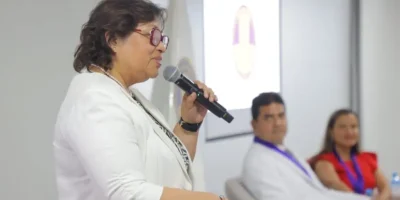Overview:
Lewis Cine, a Haitian-born safety, is headed to the Super Bowl with the Philadelphia Eagles after overcoming a career-threatening injury. The former first-round draft pick fought his way back after being released by the Vikings, proving his resilience in the NFL.
On Oct. 2, 2022, at Tottenham Hotspur Stadium in London, more than 60,000 fans watched as the Minnesota Vikings faced off against the New Orleans Saints in their fourth game of the season. Late in the first quarter, with the Vikings leading 7-0, the Saints punted the ball, transitioning to defense. Then—BOOM. A violent collision.
Lewis Cine, a promising rookie safety, lay on the field, clutching his left ankle. Teammates and trainers rushed over as the stadium fell silent. Moments later, he was carted off with a leg brace, an oxygen mask pressed to his face. The game resumed, and the Vikings edged out a 28-25 win, but for Cine, the season—and possibly his career—was over. His diagnosis: a compound fracture that required immediate surgery. His dreams of bringing his mother from Haiti to the U.S. now seemed uncertain.
“She struggled early on to raise me. Those times weren’t easy for her. I keep that time she took care of me when it was hard back then, very close to my heart,” Cine told DawgNation in 2018 when Cine was a High school student and amongst the top prospective college defensive safeties in the country.
Born on Oct. 5, 1999, in Port-au-Prince, Haiti, Cine lived with his mother, Beatrice Seide, until he was four. Then, he moved to Florida to live with his father before relocating to Everett, Massachusetts where he first started playing football in middle school.
Cine’s raw talent caught the attention of scouts early. After bouncing between schools, he played at Trinity Christian School in Cedar Hill, Texas. Cine amassed offers from 36 colleges and committed to the University of Georgia.
At Georgia, Cine helped lead the Bulldogs to back-to-back national championships in 2021 and 2022. His standout performances earned him a first-round selection in the 2022 NFL Draft—picked 32nd overall by the Minnesota Vikings.
A promising start cut short
Cine played his first preseason game against the Las Vegas Raiders, eager to make an impact. But in his first regular season, he had no game starts and saw limited action in three games before his devastating injury in London.
With his rookie season over before it had truly begun, Cine focused on rehabilitation. Months of grueling recovery followed.
“I really appreciate the training staff, everyone in the training staff,” Cine said in an April 2023 press conference at TCO Performance Center in Minnesota. “And dietitians, strength coaches, everyone in the facility for putting me back together to get me to where I am now.”
Despite months of rehab, Cine struggled to regain his form. He returned on Nov. 27, 2023, for “Monday Night Football” against the Bears—his first game since the injury. By the season’s end, he had played seven games, mostly on special teams, with just one tackle in the Vikings’ 33-10 loss to the Packers.
Uncertain about his future, Minnesota tried to trade him but ultimately released him on Aug. 27, 2024. Cine considered the Jets but signed with the Buffalo Bills, switching to linebacker. Stuck on the practice squad, he never saw game time.
Then, a last-minute opportunity changed everything.
Four days before their playoff opener, the Philadelphia Eagles signed Cine to their active roster, reestablishing his path to the Super Bowl.
Bound for the Super Bowl
In Philadelphia, Cine reunited with former Georgia teammates Jalen Carter, Jordan Davis, Nolan Smith, Nakobe Dean, and Kelee Ringo, as well as former Bills linebacker Nicholas Morrow, who had re-signed with the Eagles on Jan. 14.
Now, Cine is set to compete for a national title. On Feb. 9, 2025, at the Superdome in New Orleans, he will take the field for Super Bowl LIX as the Eagles battle the Kansas City Chiefs for the Lombardi Trophy.
For Cine, reaching the Super Bowl is a major milestone in a career once jeopardized by a devastating injury. From his beginnings in Haiti to his rise in American football, his journey has been defined by obstacles that could have derailed his career.
Despite the setbacks, Lewis Cine is back—ready to make history.
Super Bowl LIX kicks off on Sunday, Feb. 9, 2025, at 6:30 pm EST on FOX.















